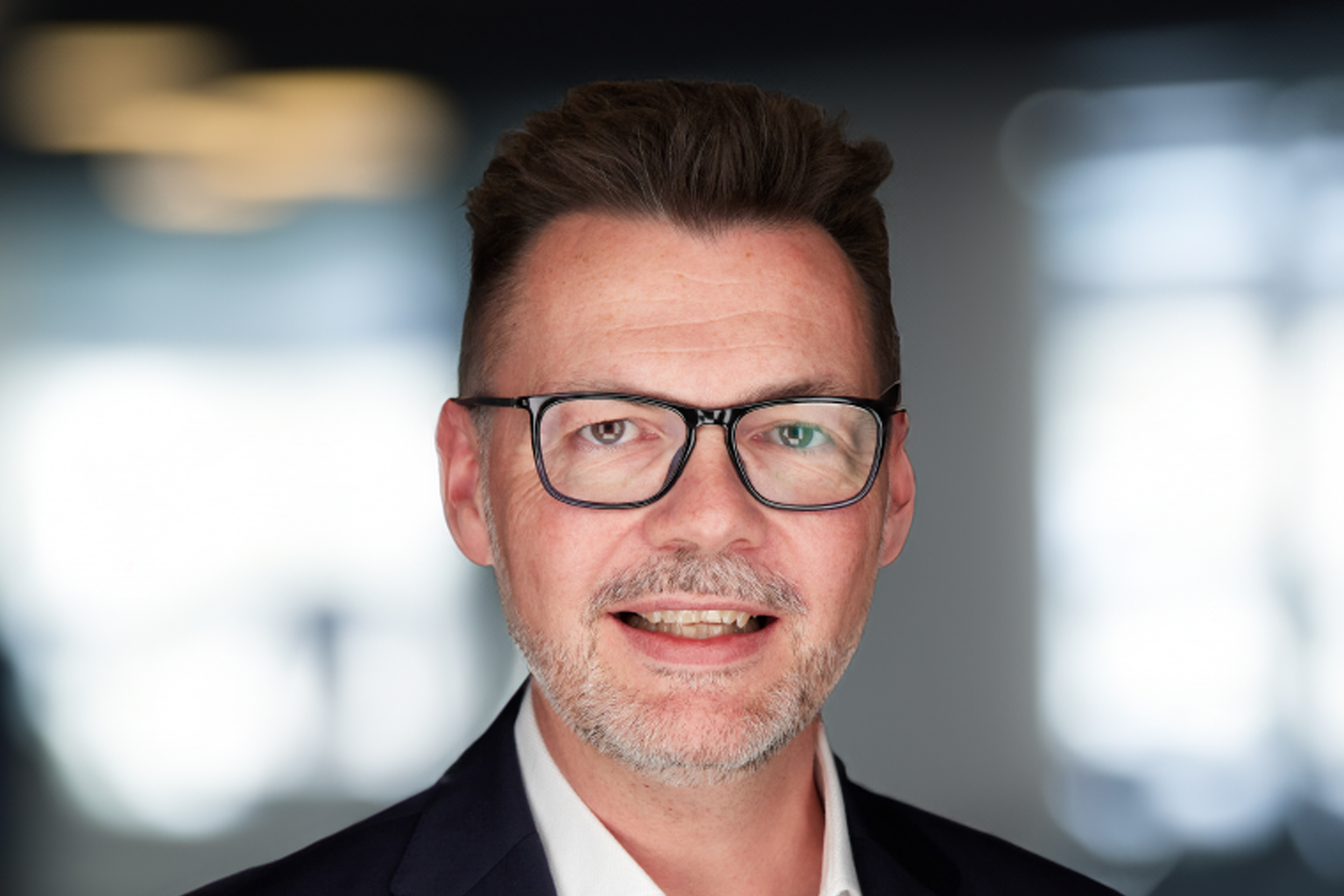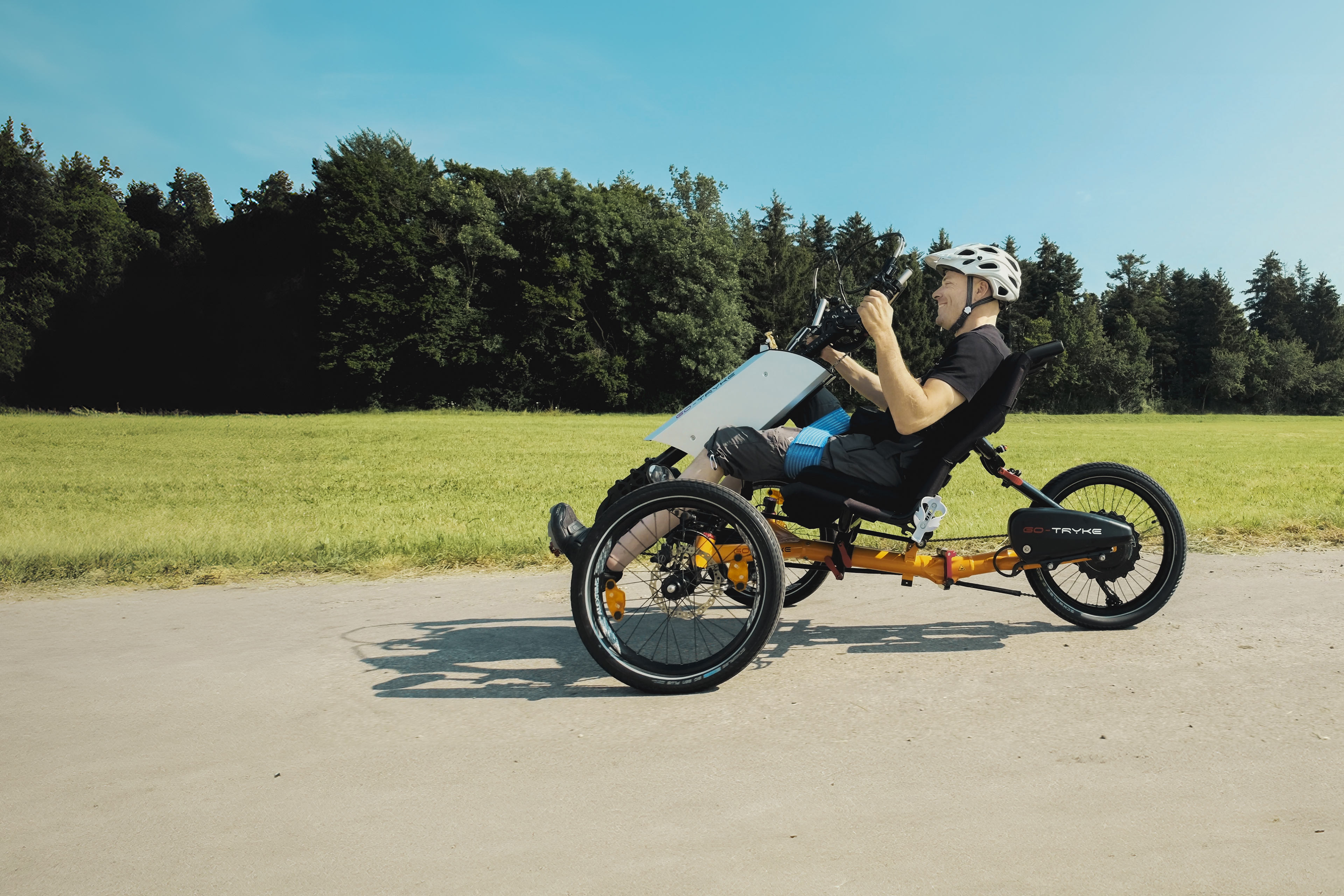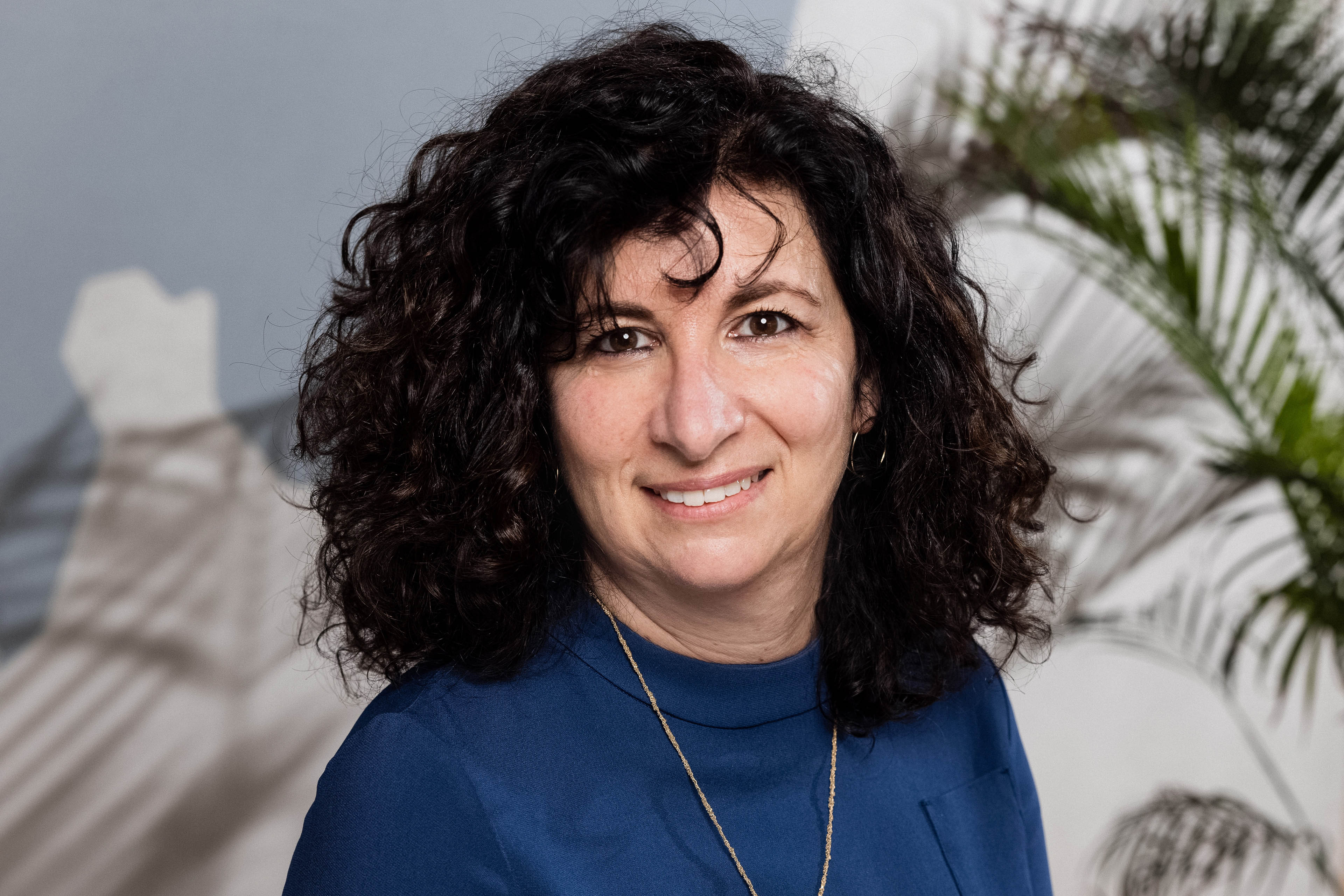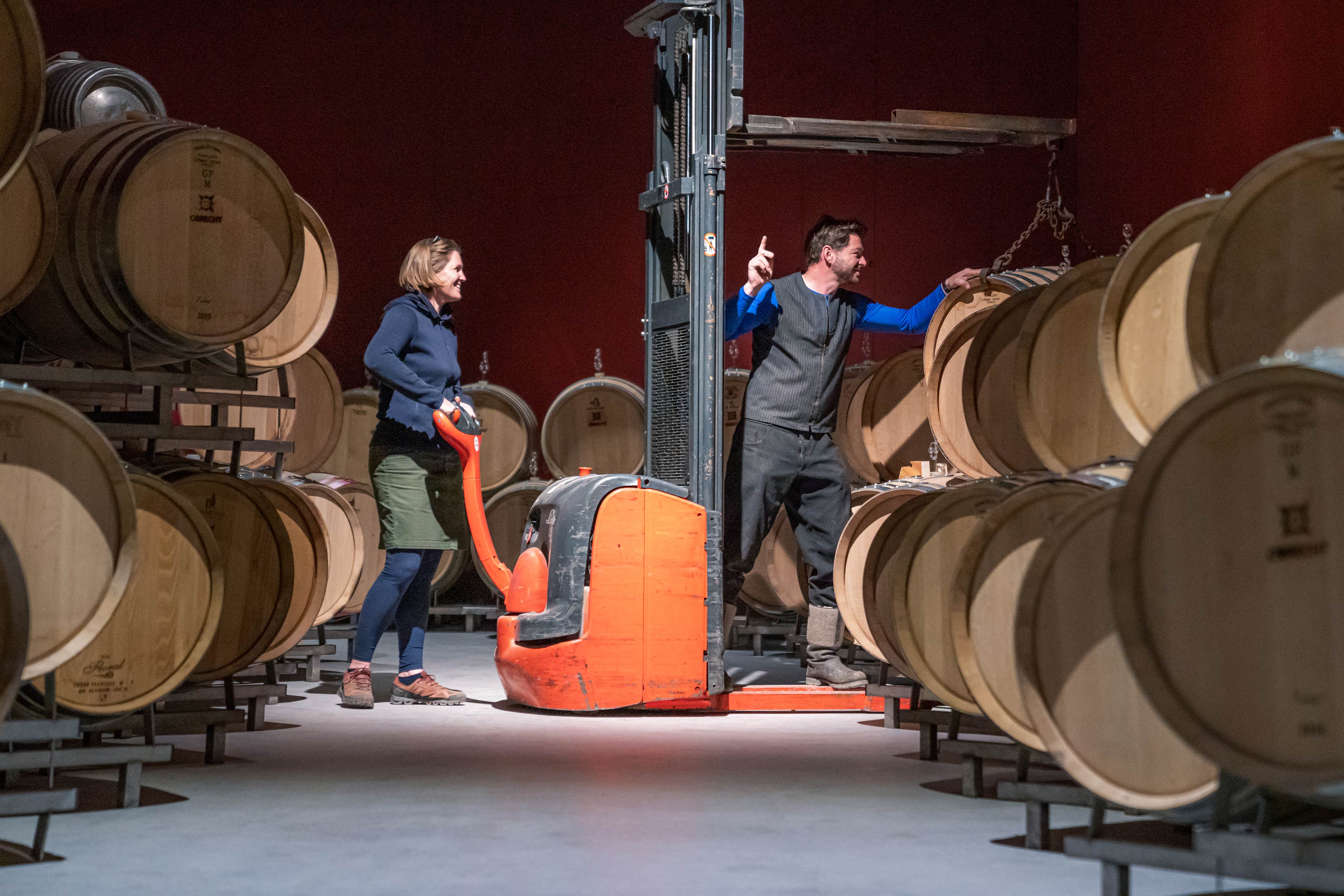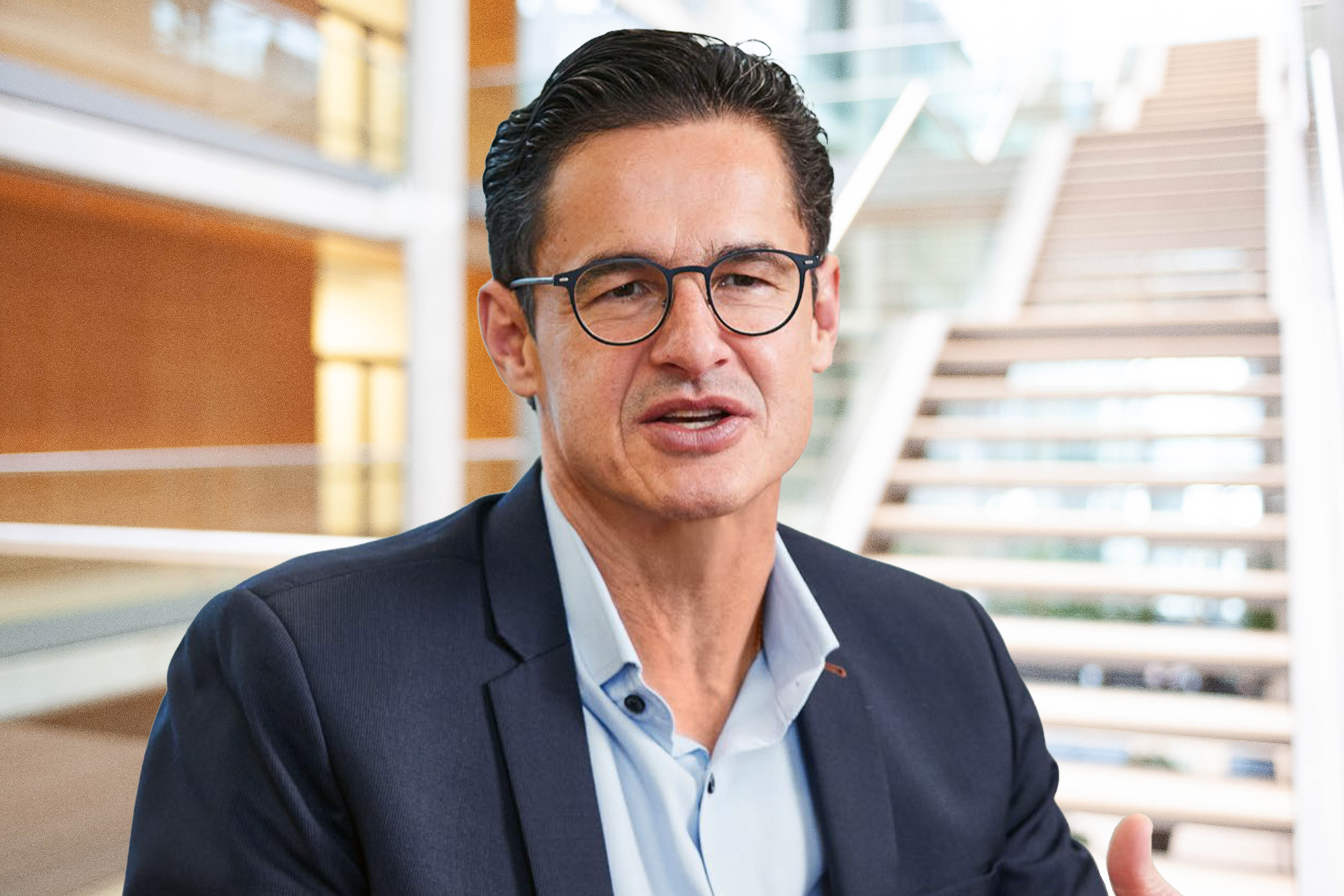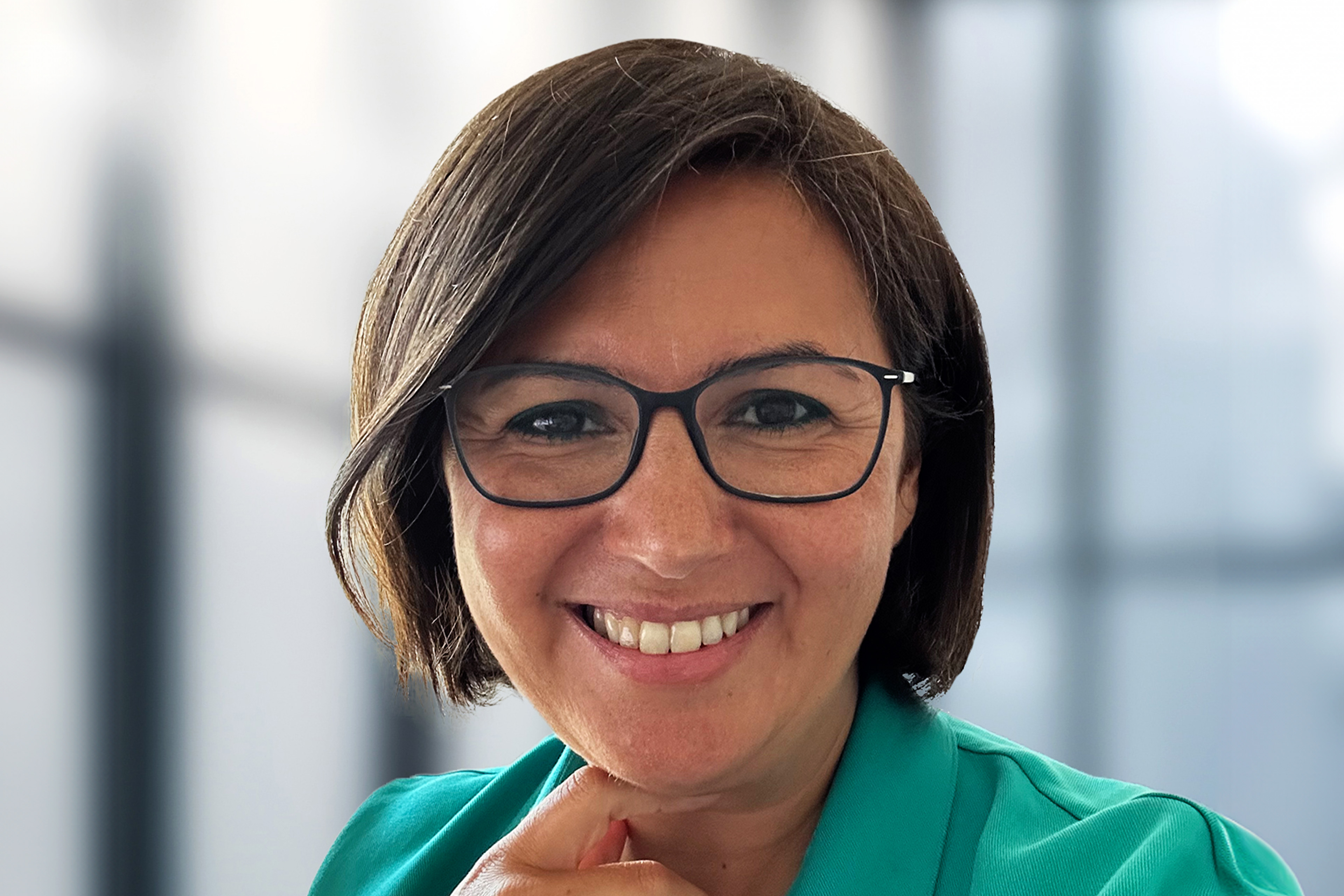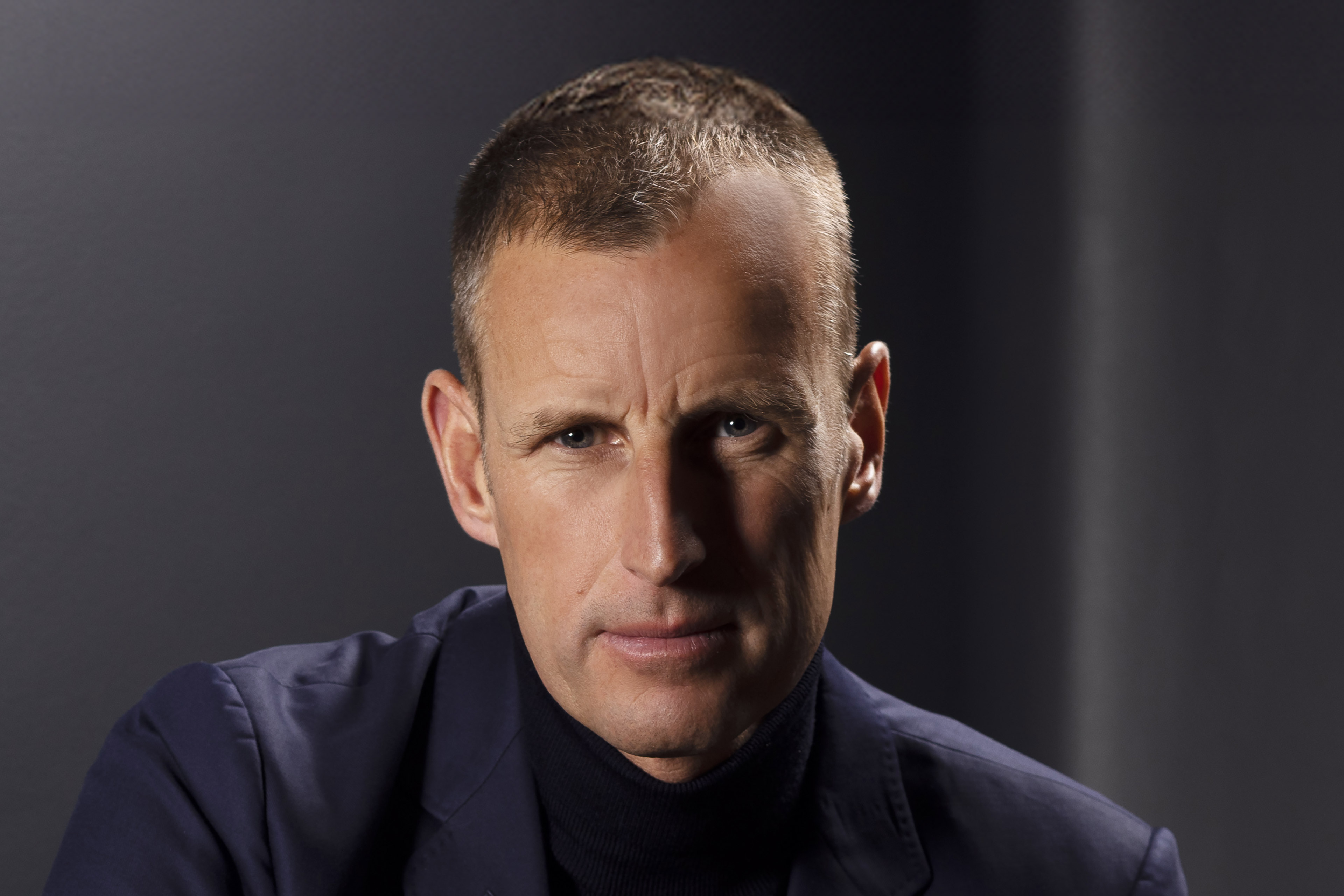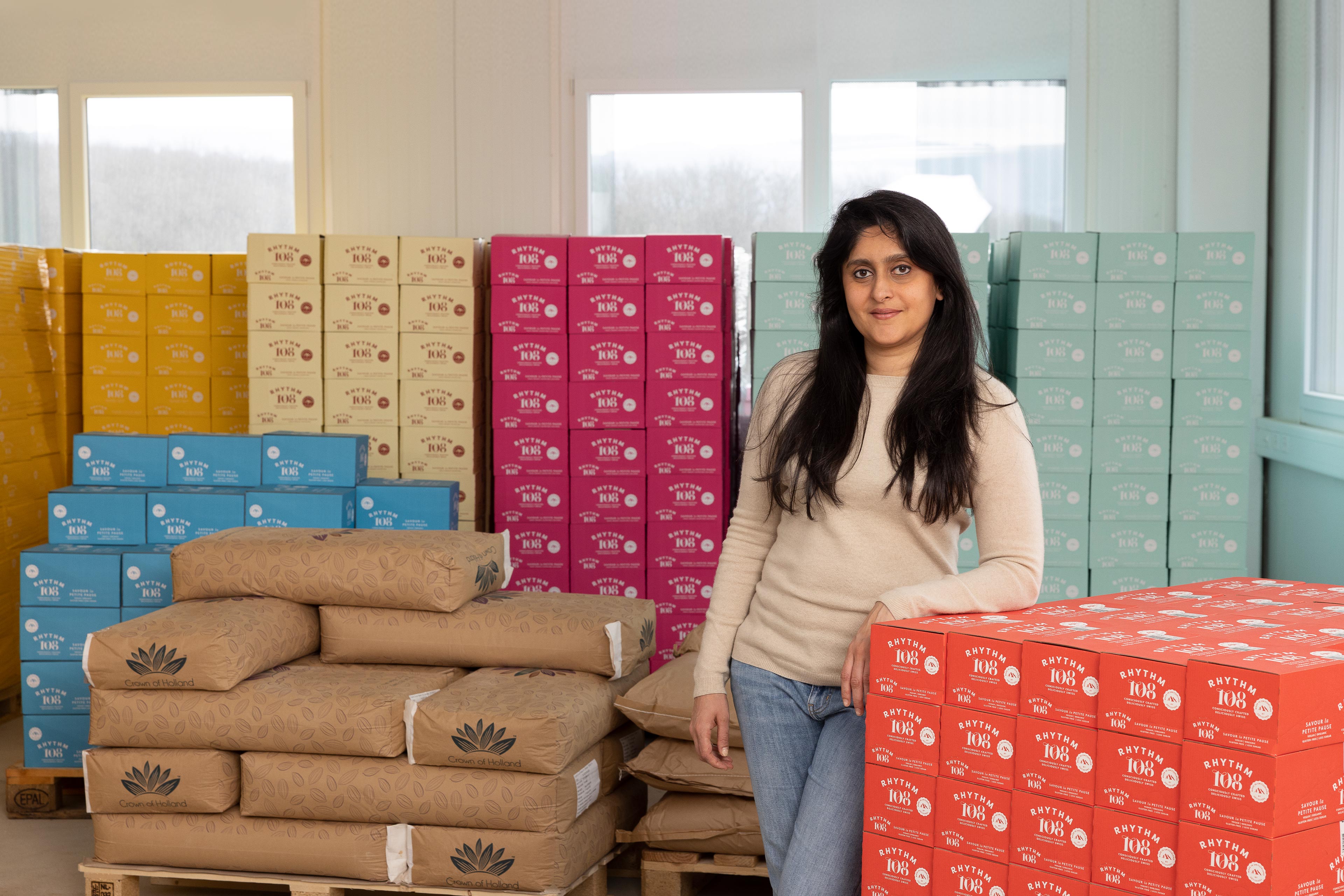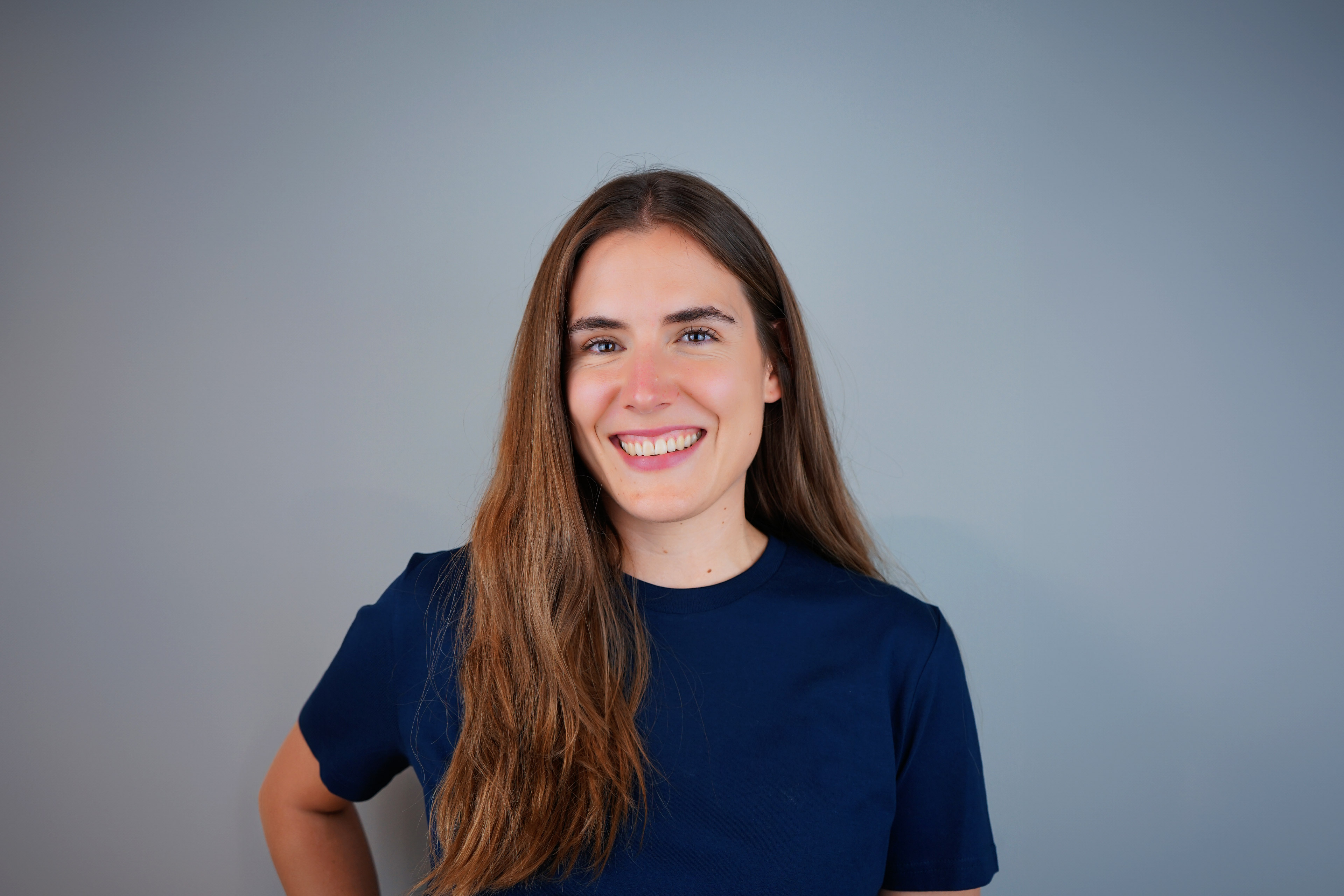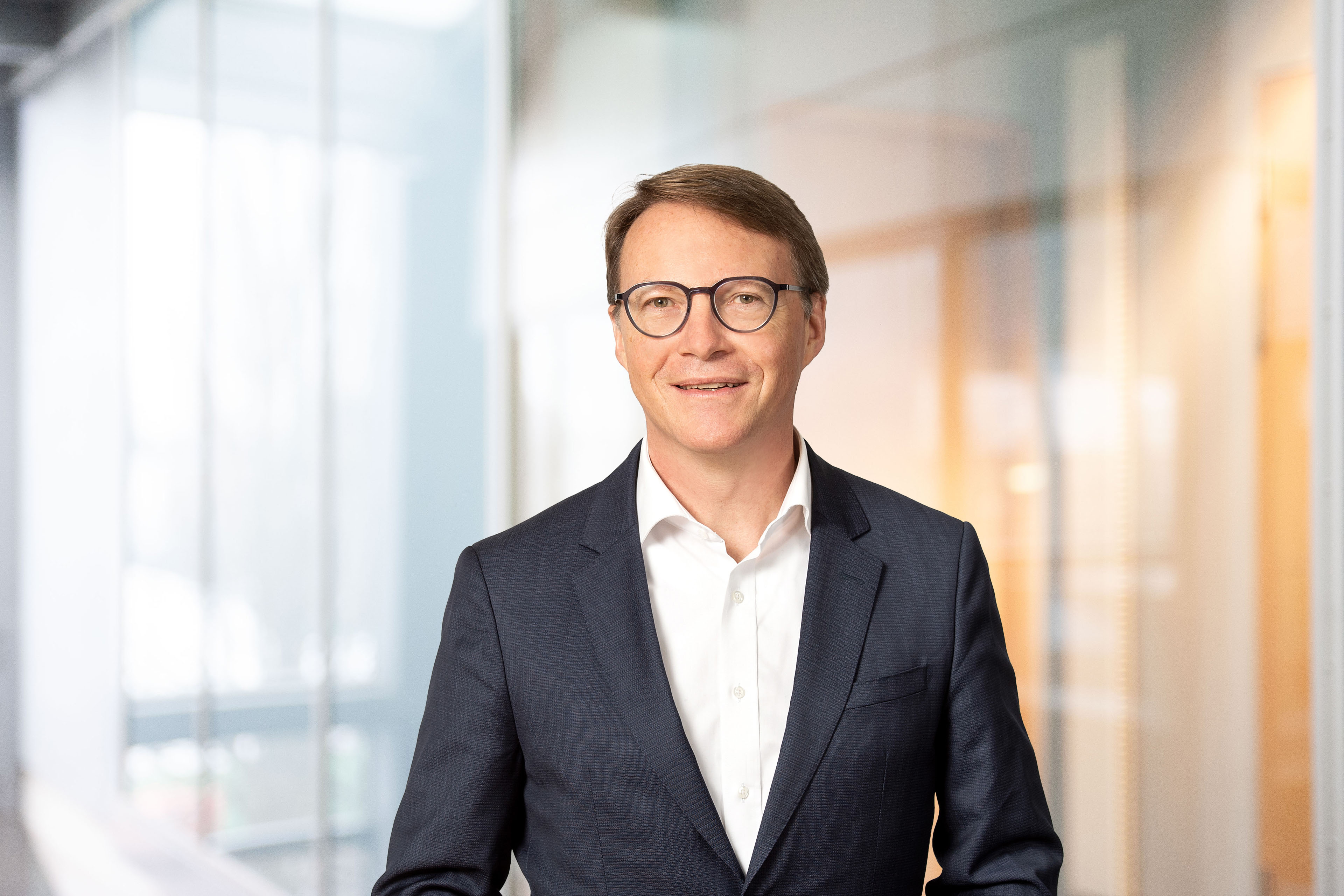EY refers to the global organization, and may refer to one or more, of the member firms of Ernst & Young Limited, each of which is a separate legal entity. Ernst & Young Limited is a Swiss company with registered seats in Switzerland providing services to clients in Switzerland.
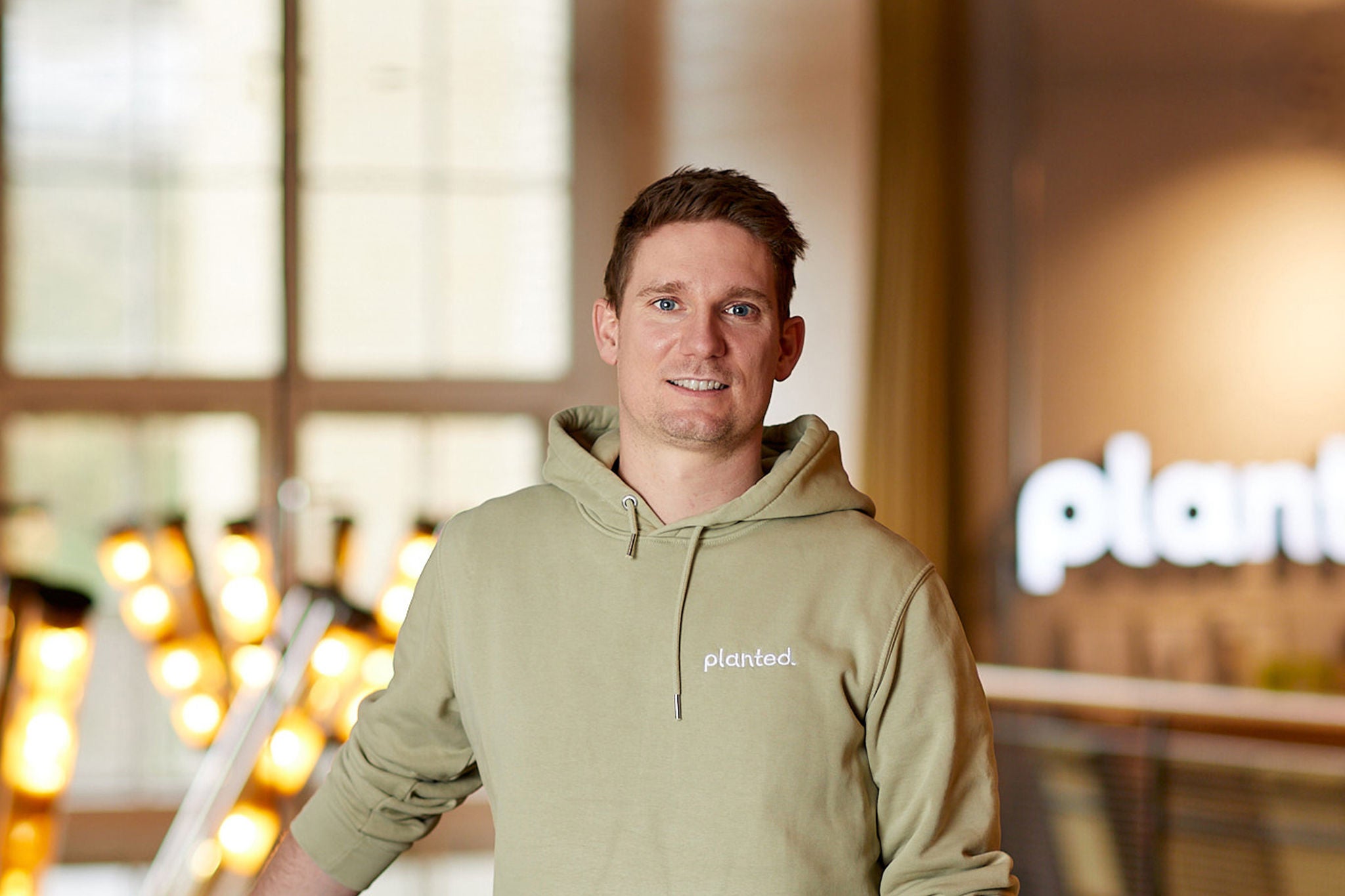
“Sustainability should be accessible to everyone
Christoph Jenny
Christoph Jenny is one of the four co-founders of the start-up Planted and a member of the Executive Board. Wanting to make a difference to climate change, human health and animal welfare, they began to develop and produce additive-free, plant-based meat in 2019. Now, Planted has more than 200 employees and is the fastest growing start-up in the field of alternative proteins in Europe. Christoph Jenny holds a master’s degree in Finance from the University of Zurich. He launched his career in asset management at Credit Suisse and worked at Jacobs Holding before founding Planted.
The climate crisis prompted Christoph Jenny and three friends to found Planted – just before the pandemic. Crises have accompanied the company since day one. How does the Zurich-based start-up cope with the current power shortage and supply bottlenecks, and what’s the role of corporate culture in all of this? Co-founder Christoph Jenny talked to us about troubled times and rosy prospects for the future.
What does a typical working day look like for you?
I start my workday at 8 a.m. with a brief exchange with the Executive Board. Together we go through the day’s agenda. This is followed by various one-on-ones and team meetings. Because we’re growing so quickly, we spend a lot of time on communication at the moment to make sure everyone’s moving in the same direction. I also attend many meetings with public stakeholders. Our vision – to fundamentally change the way people eat – requires education. We’re aiming for a better and more sustainable diet that allows people to consume meat without a guilty conscience or negative side effects. We believe in a diet that could potentially suit 10 billion people, without the need for anyone to go hungry.
What different aspects of sustainability does Planted address with its business model?
First and foremost, the customer demand must be sustainable. Our product – its taste, its composition and the experience it offers – must be better than what consumers are used to today. Price is also crucial. We have to become cheaper than the animal equivalent. In Switzerland, we currently have parity in this respect, but with the potential to steadily lower prices. We stand by this even in these inflationary times. Another important aspect is health. The coronavirus pandemic has taught us all what a great privilege it is. There are no antibiotic residues or other nasty ingredients in our products, only good ones. Meat provides many essential nutrients such as iron and vitamin B12. We need to ensure our product does the same in order to live up to our health promise. Some of our products even have a higher protein content than meat from an animal. In terms of CO2 emissions, we’re already clearly outperforming the animal equivalent. Taking chicken as an example, we achieve a 74 percent CO2 saving. For other products, it’s even as much as 86 percent. We’re helping to reduce CO2 emissions and animal suffering by being able to demonstrate transparently to consumers that we’re better than animal meat, and that we deliver on our value proposition with a product that’s fun to eat and tastes good in everyday life.
We’re aiming for a better and more sustainable diet that allows people to consume meat without a guilty conscience or negative side effects.
How does the climate crisis affect your company?
The climate crisis is our raison d’être. People understand that we can’t continue as we are. That’s very positive. Now it’s up to us to deliver a product that excites people so much that they actually take action. We all have it in our own hands to make a difference. By switching from animal to plant-based meat, everyone can make a contribution.
The climate crisis is our raison d’être.
How do you address supply chain difficulties?
We don’t know life without them. We founded Planted in the summer of 2019. Covid came six months later. We have learned to deal with it. We plan early and maintain larger stocks so that we can guarantee re-orders at any time. Today, catering businesses in particular order at much shorter notice than in the past, so as not to be stuck with stock.
How is the energy crisis affecting you?
Of course, we also feel the higher energy costs. But we have very efficient production with internal cooling circuits. We use the waste heat to heat our offices. The situation is somewhat different in logistics, where we have to cover large distances. We source the protein from Europe. We also export to the European markets. That is certainly a challenge. With regard to CO2 emissions, we have tried to optimize processes from the very beginning. Today, we benefit two-fold from the fact that we have always managed our footprint very consciously.
Today, we benefit two-fold from the fact that we have always managed our footprint very consciously.
What general sustainability trends do you observe?
Sustainability is important, but not at any cost. People don’t like to make big compromises. That’s another reason why we exist. The recent crises have also highlighted other issues that people are concerned about – especially now with inflation. We as a society have to be able to deal with these issues and engage in fair and honest dialogue. Sustainability should be accessible to everyone. This is where pricing policy plays in again and why it’s so important for us to become more affordable. We see the democratization of sustainability as one of the very big and important points.
We see the democratization of sustainability as one of the very big and important issues.
What levers are you using to become even more sustainable?
We are sourcing more and more raw materials locally. For example, we now get some of our yellow peas from Switzerland. We fought for two years to ensure that Swiss farmers would not lose their subsidies if they supplied us. Until 2 November 2022, the federal government paid the money only if the raw material was fed to animals. To localize our supply chain, there are many more obstacles we still need to remove. We’ve also started looking at the degree of processing – how we can make the best use of the mill – and the transportation routes. To do that, we look at where the raw materials come from and where our consumers are located so we can find the ideal position for our factories. And then plastic is certainly a big issue. In the fight against food waste, it’s the most efficient solution as it enables a much longer shelf life, meaning a lot less food goes to waste. On the other hand, plastic is very problematic for our environment. We look specifically at which plastic we use for what, and how we can optimize its use. We also incorporate recycled plastic and even have a research project that aims to develop an edible packaging shell.
What values underpin your corporate culture?
People always expect a start-up to have a cool corporate culture. But that’s not necessarily the case. I think corporate culture is the sum of the relationships that people have with each other. These relationships only grow over time. We can write as many values on the wall as we want and talk about them for hours. In the end, you have to live them. And therein lies the major challenge: building relationships in a very short time. To do this, we rely on collaborative and inclusive work. We strive to make 80 percent of decisions as a team. If the Executive Board decides alone, it is extremely important for us to explain to our team why we acted the way we did. We let our people participate and involve them. When people understand why, it’s much easier to implement a decision. We also have a positive collaboration style and always assume that the other party is acting in good faith. We do not act on our own authority, but always for the team. This is especially important because we have a great culture of embracing mistakes, which often have to be solved together. That is challenging. You already have enough on your plate and then you have to help others. Transparency is also very important to us. We deal with each other honestly and openly. We talk about mistakes and analyze them. It means we’re creating a collective memory, a collective culture, and can understand what works and what doesn’t.
Corporate culture is the sum of the relationships that people have with each other.
Where will Planted be in ten years?
I think we will be considerably bigger. And I’d like our industry to make it into the mass market. At the moment, we still serve a lot of idealists and early adopters. That’s something that should and must change. Time is running out. Just looking at carbon footprint, our position gets worse every year. We have to pull this lever. Fifteen percent of CO2 emissions come from agriculture. We can change that, and I hope that in ten years’ time we’ll have made significant improvements in this respect.
Featured articles and interviews
Sebastian Tobler, Co-founder and CEO of GBY SA
Sebastian Tobler is co-founder and CEO of GBY SA, which has developed a new approach for the rehabilitation of people with reduced mobility. An automotive engineer by training and trade, Sebastian Tobler’s life took a new direction when a bike accident left him paralysed. Alongside his entrepreneurial activities, he heads the SCI-Mobility Lab as Professor at the Bern University of Applied Sciences.
Originally from Naples where she grew up and studied physics, Luciana Vaccaro moved to Switzerland in 1996 to complete a PhD in microengineering at EPFL. She held various positions in research and education at the universities of Neuchâtel and Lausanne before heading the Grant Office at EPFL. In 2013 she took the reins of HES-SO as rector. Last October, Luciana Vaccaro was elected president of the umbrella organization swissuniversities and started in her new position on 1 February.
Francisca Obrecht, Weingut Obrecht
Peter Rupp grew up in Sargans, Switzerland, around 20km south of the Hilti headquarters in Liechtenstein. He studied Economics in St. Gallen, then took a post-graduate degree in Engineering in Winterthur.
Peter Rupp grew up in Sargans, Switzerland, around 20km south of the Hilti headquarters in Liechtenstein. He studied Economics in St. Gallen, then took a post-graduate degree in Engineering in Winterthur.
Serra Bicak is Senior Vice President Reckitt Africa Middle East at Reckitt Hygiene. She has lived and worked in eight different countries for various roles during her career in fast-moving consumer goods. Serra Bicak is passionate about diversity, equity and inclusion (DE&I) and leads Reckitt Hygiene’s gender balance program.
Patrick Pruniaux, Chairman & CEO of Sowind Group
Patrick Pruniaux has a background in business administration and began his career in the watch industry at TAG Heuer. Always fascinated by innovation, he joined Apple in 2014 and oversaw the launch of the Apple Watch. Following a move to Kering in 2017, he managed the Ulysse Nardin and Girard-Perregaux watch brands. In 2022, Patrick Pruniaux spearheaded the historic management buyout and now serves as CEO of these two brands within Sowind Group.
Siddhi Mehta, founder and CEO of Rhythm 108, talked to us about sustainability, craftmanship – and how her company combines heritage and innovation to take the Swiss chocolate tradition into the future.
Judith Häberli, CGO and co-founder of Urban Connect as well as EY Entrepreneur Of The Year™ 2023 Switzerland winner in the category "Emerging Entrepreneur", shares her motivation for starting a corporate mobility platform and explains why real change only happens when companies work together.
Thomas Fürer has served ABB for 22 years, including 14 years in his current role as Group Head of Tax. A Certified Swiss Fiduciary Expert and Certified Swiss Tax Expert, he takes a keen interest in technology and digitalization in the tax function and beyond.



